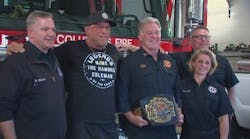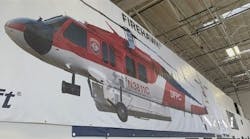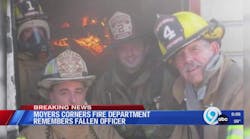Once again my friends it is question and answer time. It seems that a recent communication from a dear friend of mine stirred up my creative juices. One of my recent commentaries caused him to make a rather telling comment on the manner in which his agency operates. He asked if I had a placed a hidden video camera at his facility. Of course, no such camera ever exists (at least in my life and world) and I told him so. I replied to that person that my task as a writer and commentator was to observe the world around me and then make such cogent comments as my research, education, and experience allow.
He then suggested that his workplace was a Petri dish for bad leadership and management. It was at this point that the light bulb above my head flashed on and I quickly sent an e-mail back with the comment that is now the title of this visit with you. In that message I suggested that there were two places where things are expected to grow. We need to look at how each works to see the merit within my message.
Let me first suggest that there are the fertile pastures in our world where great crops of food are raised to feed and nurture our growing population. This is a positive thing. This is a place where good things happen because of the labors of hard-working people. Then there is the Petri dish which has served as a basic building block in our scientific labs for a long time now.
The Petri dish is a shallow glass or plastic cylindrical dish which scientists use to grow cultures of bacteria and other such yucky stuff. While these devices serve a very useful scientific purpose, the things which grow within them are most vile things indeed.
How many of you can recall the experiments back in science class in high school (or college) where you had to grow a particular culture over a period of time? It is herein where the tie-in to my words in this commentary occurs. I am suggesting to you that it is your fire department's operational culture which is being examined here. Does your culture support the growth of healthy human participants, or do you grow moldy, dispirited clods? Let me give you some clues as to how to create the proper atmosphere for personnel growth and development within your world.
It has been my observation that great deal of research has been undertaken over the decades with the express purpose of that work being the identification of what the researchers discover to be the latest twists and turns in the world of leadership theory. Sometimes I think that there has been more research done on the topic of leadership and its related effects than there has been on the serious diseases of our society. But I could be wrong about that.
As a result of all of this research, much has been written about the importance of leaders in every aspect of our lives. I have been involved in this effort to be sure, but I often though that something was missing. This article has been written in response to my finding about the two sides of the leadership coin. I have learned one thing for sure. It isn't just about leaders my friends. It is about followers too.
Let me suggest that when you study leaders you are only studying one half of the equation. What good is the best leader in the history of the world if there is an absence of well-trained and properly motivated followers? This is something which has interested me for a number of years now. I guess the importance of followers came to me slowly during the time I was completing my doctorate in leadership at Capella University.
There are a number of reasons for my interest in this topic. As a veteran of more than 47 years' service in the fire and emergency services world I have seen a great deal. My exposure to a wide range of both leaders and followers through the years has given me great pause to ponder this issue. While I recognize the criticality of leadership, I have discovered that the absence of good people to support the leader can be a tremendous disadvantage when it comes to having a well-function fire organization.
If the truth were to be totally told my friends, there seems to be one heck of a lot of people out there masquerading as leaders within our fire service. Oh, these folks try to dress the part and they try to talk the talk. They take on airs of self-importance and the yell at other people a lot. Unfortunately, most of them have never had the benefit of a caring and concerned mentor to help them find their way in the leadership world. These are the sort of people who create the damp and musty climates which turn your pasture into a Petri dish.
Like many parts of life, bad begets bad. If you were trained by a poor leader, in the absence of divine intervention, you too will be a poor leader. Let me share a quotation which you which I have come to understand better as the years go by. It is an old English proverb whose meaning has grown greatly over time. "Success has many fathers, while failure is an orphan". No one will ever own up to being a bad leader, but they are all around us.
If you have poor leaders, please expect them to be leading poor followers. It is really just that simple. That is why I have taken it upon myself to tie these two positions together in my study of the leadership-followership equation. It is like the old Frank Sinatra ballad entitled 'Love and Marriage." The key lyric in that tune for purposes of this commentary is the part about, "… you can't have one without the other."
What are some of the things which you and I should be looking for in our leaders? We are all looking for leaders who have a solid, easily understood vision for the direction in which they hope to see our organizations head. We are looking for leaders who are able to communicate their message in a simple and easily-understood manner. We want a leader who will listen to us and actively absorb and study our concerns.
We want this leader to be someone we can respect and admire. We want them to be someone with whom we can connect and try to be like. Oh my goodness, have I just described a "role model"? I think I have. More than a role model, we want this leader to take a proactive interest in the care and feeding of his people. We want this person to be one who actively and sincerely wishes to bring out the best in their people.
This person must understand how the communications process works. They need to understand that all effective communications is a two-way street. The message must be simple and couched in the language of the people with whom the communications exchange is framed and conducted. Do not use big words when small words will work just as well. Of course it might be that I am not the best person to offer this advice. I have been known to accuse people of obfuscating the facts and having a cavalier manner towards their supernumeraries. See what I mean? I have to work hard to keep it simple.
The people who create the greatest followers are the folks who know how to motivate their people. They take the time to know them as individuals. In this way they can understand what makes them tick. It allows them to lay out their operations in a way that will use their people to their best individual advantage. Please bear in mind that most people will respond well to positive support and motivation. However, there will be those who will need the stick rather than the carrot to gain their attention. Even the most fertile of pastures has a need to be weeded by the farmer from time to time.
This is what separates the good leaders from the not-so-good ones. The best followers come from the leaders who take the time to understand what their folks want and expect from the fire department relationship. When people are forced to suffer through unmet expectations, they will only participate in a shallow and half-hearted manner. You will often see this when the leader is operating in an autocratic, "I am the boss" manner. People will do just enough to stay out of trouble, but that is the extent of their efforts.
Let me also suggest that the best leaders are the ones who always stand up for their people. I learned this skill from my late father who was a colonel in the U.S. Army Reserve. Having risen from the rank of buck private to full colonel, he had been exposed to a wide range of leaders and followers. I can recall the time that a sergeant major in the National Guard, who was a contemporary of my father, telling me that dad was strict, but fair.
One day on a tour of the New Jersey Military Academy in Sea Girt, he said that you always knew you were with a real soldier when you worked with dad. He always expected things to be done the proper way and usually they were. What really stuck with me was the fact that he said that my father always took the hit for his men. He was a believer in the old way of doing things. All praise was public and all criticism was private, however, if he thought the criticism of his troops was unjust or unnecessary, he sucked it up, took the hit, and took care of his troops.
This is exactly how my brother Bob and I worked when we were battalion chiefs in adjoining districts in Newark. You had to go through each of us in any attempt to get to our guys, and that did not happen all that much. I know that it took a toll on my career, but I would rather be held in high regard by the gang than by the front office. That is how you build a solid team. You must consistently support your people. You build loyalty by living loyalty.
Rest assured that I never had the opportunity to fight fire with the gang in the front office. These people were too busy making sure that the mold was growing in the Petri dish. However, the guys in the firehouse and I rode out the door together many, many times. Each success I ever was privileged to enjoy came about because of my hard-working guys. I loved that gang. Let me assure you that is the part of my time in Newark that I miss most; the personal leadership-followership equation that I was allowed to enjoy for so many years.
By implementing a vision which is well-understood and willingly shared by their followers, a leader stands a far better chance of building a better team. It is this shared vision which will allow the followers to develop a better understanding of their role within the organization. It is up to the leader to create a cadre of followers who understand the purpose of the organization and their role within it. It is this interaction which allows the organization to grow and prosper. Followers such as these usually develop into more dynamic supporters of the fire department's mission. They are the fruit of the labors of our best farmer (leaders).
It is extremely important for leaders and followers both to understand their shared responsibility for organization success. It is not an "us against them" equation. It is about teamwork in a common effort toward shared a mission, goals, and objectives. It is up to the leader to create followers who have to courage to accept the responsibilities given to them.
However, the follower must also be trained to do their job. They must be watered and fed by the leader. The responsibility for a failure to provide proper training to the troops lies at the feet of the leader. Let me caution you that unless a leader has been impressed with the importance of training during their development, they stand little chance of understanding why training is so important.
A properly developed and challenged follower must have the courage to challenge the accepted ways and wisdom of doing business within the organization from time to time. Blind followership is never a good thing. The leader and the follower must both participate in an honest exchange of ideas about how the work of the agency must be accomplished. As you might imagine, honesty on all sides is a critical element within the leadership-followership equation. The last thing a leader should do is spring surprises on their followers.
But then again, think about the number of followers who only share the good news and not the bad news with their supervisors. This was something I have had to battle many times during my life in a variety of situations and circumstances. Many times I was force by circumstance to do this because it was the only way to get things done in the face of adverse departmental leadership.
It was never right, but it was the only avenue open to my fellow fire personnel and me. I have even developed a philosophy to describe how this type of leader-follower interaction came to work. It goes like this. "It is sometimes better to beg forgiveness than to seek permission." Was I right? No. What I learned was to avoid creating situations where this type of follower behavior was even necessary. That is a critical element in the creation of an effective organization.
It is important for all elements of any organization to come together in a common effort to understand the true purpose of their entity. Why do fire departments exist? What is their mission? What are their goals? What are their operational objectives? If you are to succeed in developing an effective leader-follower equation, all parties to that relationship must come to an agreement as to why they exist and what they are supposed to be doing.
Based upon my decades of experience in the fire and emergency service world, let me suggest that there are just three ways to look at how this relationship can turn out:
- You are on the bus working and learning with your fellow travelers within the fire department
- You missed the bus and are running down the street in an often-vain attempt to catch it
- You are under the bus
Really, there are no other options which I can offer to you for your consideration. Have been in each of these locations at one time or another during my time in the fire business, I am here to say that it is much better to be on the bus. I am too old to be chasing buses and I cannot take the pain of another bus wheel trampling my psyche.
Let me close my visit with you today by suggesting that it is critical for you to take an active role in determining the future of your fire department. You have the potential to be the good farmer who raises a bumper crop of followers. Likewise, you have the potential to be the lab scientist who grows an outstanding crop of mold and bacteria. I am not saying that everything will always go your way, but if you are working to be a pro-active advocate of leaders and followers coming together in a positive way, things will go your way more often than not. So let me complete my story by asking a critical question. Is your fire department a pasture or is it a Petri dish? The answer is critical. The call is yours. Act on it.
- See Harry Live! Lt. Dr. Harry Carter, will be presenting "The Leadership/Followership Equation: The Key to Fire Department Success" at Firehouse Expo, July 19 - 23, in Baltimore.
HARRY R. CARTER, Ph.D., CFO, MIFireE, a Firehouse.com Contributing Editor, is a municipal fire protection consultant based in Adelphia, NJ. Dr. Carter retired from the Newark, NJ, Fire Department and is a past chief and active life member of the Adelphia Fire Company. Follow Harry on his A View From my Front Porch blog. He recently several texts, including Leadership: A View from the Trenches and Living My Dream: Dr. Harry Carter's 2006 FIRE Act Road Trip. You can reach Harry by e-mail at [email protected].





